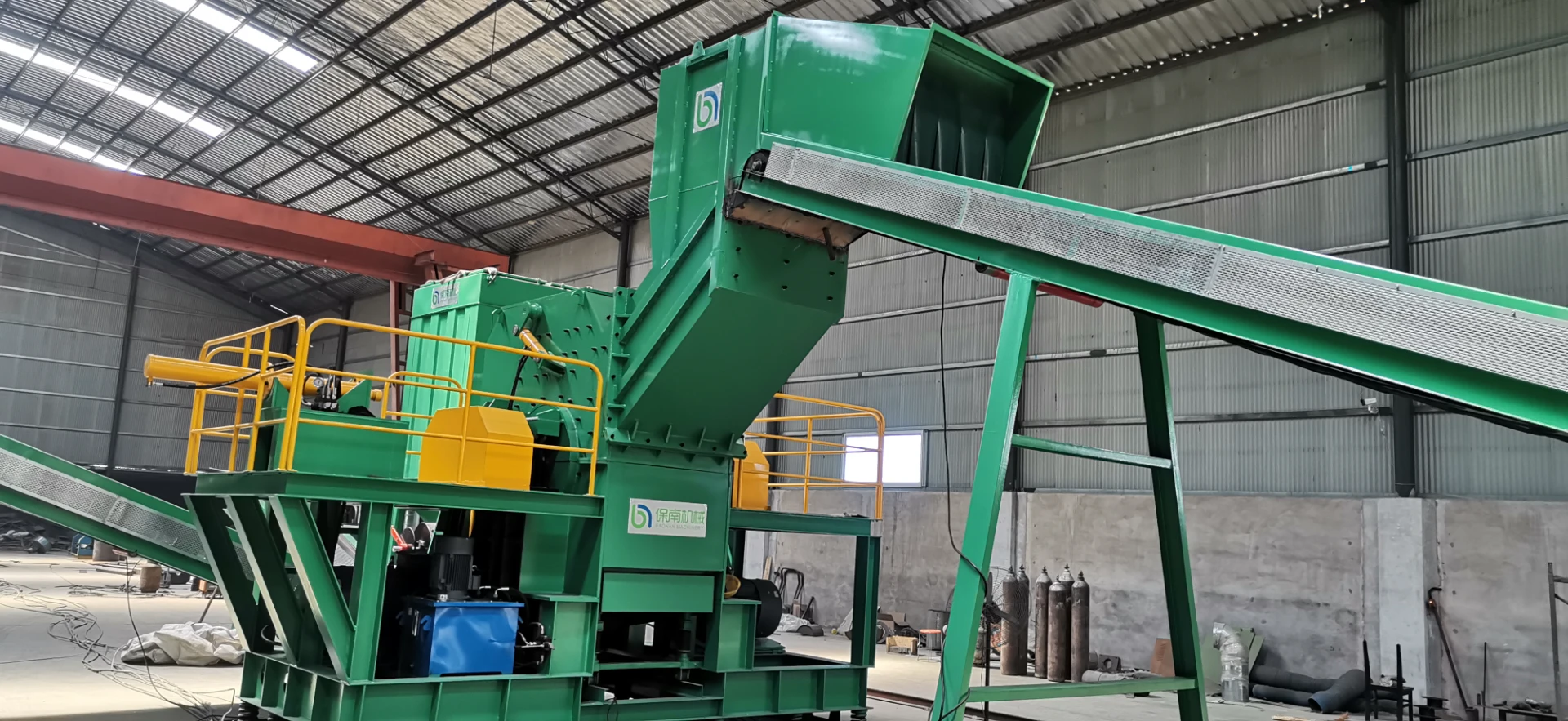

nov . 11, 2024 20:48 Back to list
The Importance of Shredder Machines for Metal Recycling
In an era where sustainability and responsible waste management are becoming increasingly critical, the role of shredder machines in the recycling industry cannot be overstated, especially when it comes to metal. Shredder machines have evolved into essential tools that greatly enhance the efficiency of metal recycling processes, transforming bulky scrap metal into manageable pieces that can be easily processed and reused. This article explores the significance of shredder machines for metal recycling, their operational principles, and the environmental and economic benefits they provide.
Understanding Shredder Machines
Shredder machines are specialized devices designed to reduce materials into smaller pieces, thereby facilitating easier handling and processing. In the context of metal recycling, these machines shred various types of metals, including aluminum, steel, copper, and more. The shredding process typically involves feeding scrap metal into the machine, which then breaks it down into smaller, uniform sizes. This not only simplifies the transportation and storage of scrap metal but also prepares it for subsequent recycling steps.
Types of Metal Shredder Machines
There are several types of shredders used in the metal recycling industry, each tailored for specific purposes. Primary shredders are designed to handle large volumes of metal, breaking it down into manageable pieces. Secondary shredders then take these smaller pieces and further reduce them to a size suitable for melting and refining. Additionally, high-torque shredders are employed for tougher materials, while portable shredders offer flexibility in various operational environments.
The Shredding Process
The shredding process typically involves two main stages primary shredding and secondary shredding. In the primary shredding stage, the large scrap metal pieces are fed into the shredder, where heavy-duty hammers or knives rotate at high speeds to tear apart the material. The result is a rough, shredded product that can be easily handled. The secondary shredding stage further refines this product, ensuring uniformity in size, which is crucial for melting in furnaces.
Lastly, the shredded metal is sorted to remove any non-metallic contaminants. This process is vital, as impurities can affect the quality of the final recycled product. Advanced technologies, such as magnetic separators and air classifiers, are often used to enhance sorting efficiency.

Environmental Benefits
The environmental benefits of using shredder machines for metal recycling are significant. Recycling metal reduces the need for mining and extracting new raw materials, which in turn conserves natural resources and reduces energy consumption. According to the Environmental Protection Agency (EPA), recycling aluminum saves up to 95% of the energy required to produce it from raw materials. Additionally, metal recycling reduces greenhouse gas emissions associated with the production process, contributing to a lower carbon footprint.
Moreover, shredding metals aids in land conservation. As more scrap metal is recycled, fewer landfills are required to store waste, helping to preserve natural habitats and ecosystems.
Economic Advantages
The economic advantages of shredder machines are equally compelling. The recycling industry creates jobs, from collection and processing to transportation and sales of recycled materials. By investing in shredding technology, companies can increase their efficiency, reduce operational costs, and enhance profitability. Shredded metal has a higher market value, making it a more attractive commodity for buyers.
Furthermore, businesses that utilize shredder machines can position themselves as environmentally responsible, improving their brand image and appealing to eco-conscious consumers. This alignment with sustainability can lead to increased customer loyalty and market competitiveness.
Conclusion
In conclusion, shredder machines play a vital role in the metal recycling industry, streamlining the recycling process while providing numerous environmental and economic benefits. By efficiently reducing scrap metal into manageable sizes, these machines enhance the quality of recycled materials, promote sustainable practices, and contribute to a circular economy. As the world continues to seek innovative solutions for waste management and environmental preservation, the importance of shredder machines will undoubtedly grow, serving as integral tools in our quest for a greener future.
Latest news
Troubleshooting Common Eddy Separator Problems
NewsJul.04,2025
The Role of Metal Recycling Plants in Circular Economy
NewsJul.04,2025
The Impact of Recycling Line Pickers on Waste Management Costs
NewsJul.04,2025
Safety Features Every Metal Shredder Should Have
NewsJul.04,2025
How Industrial Shredders Improve Waste Management Systems
NewsJul.04,2025
How Cable Granulators Contribute to Sustainable Recycling
NewsJul.04,2025